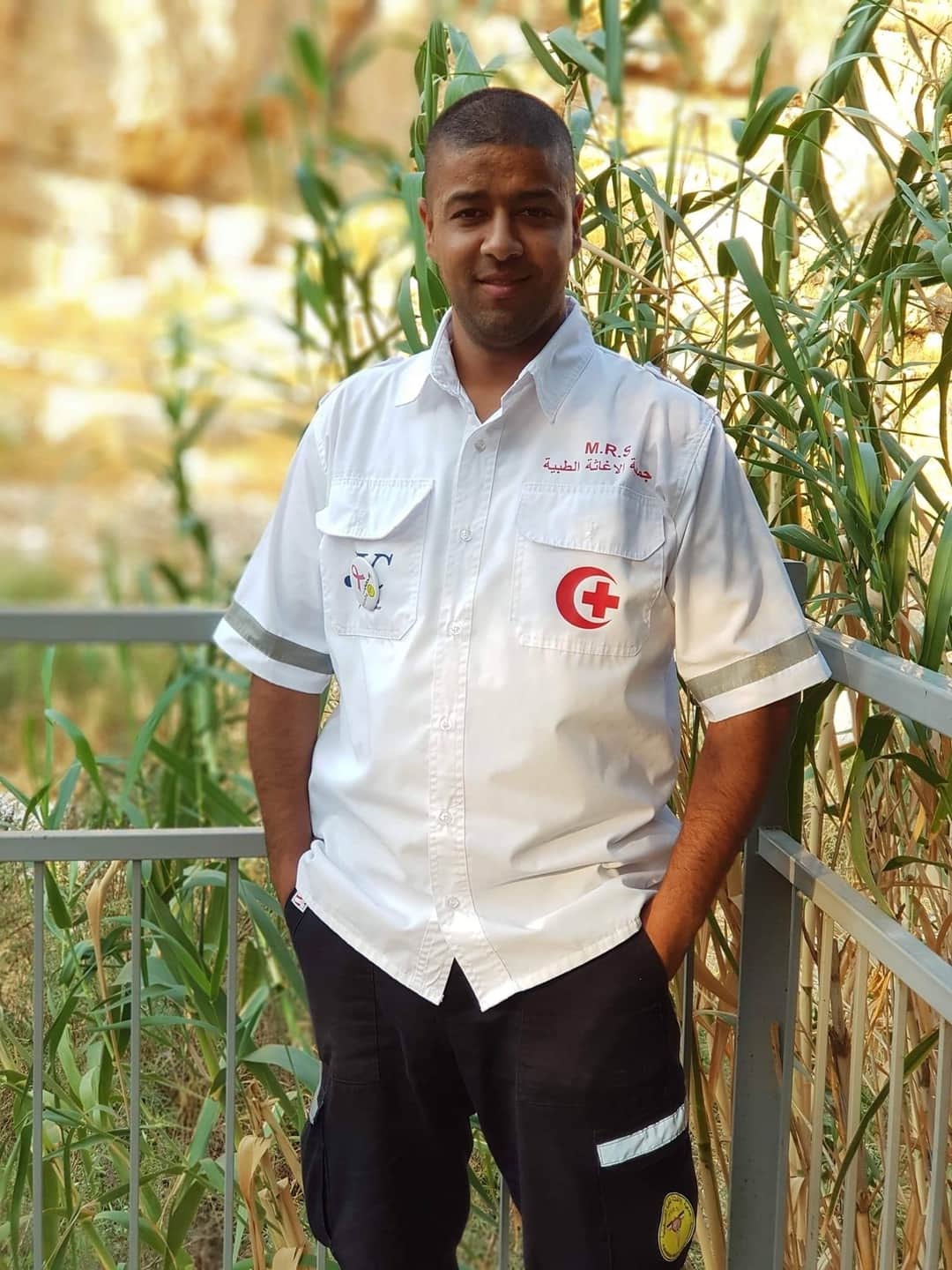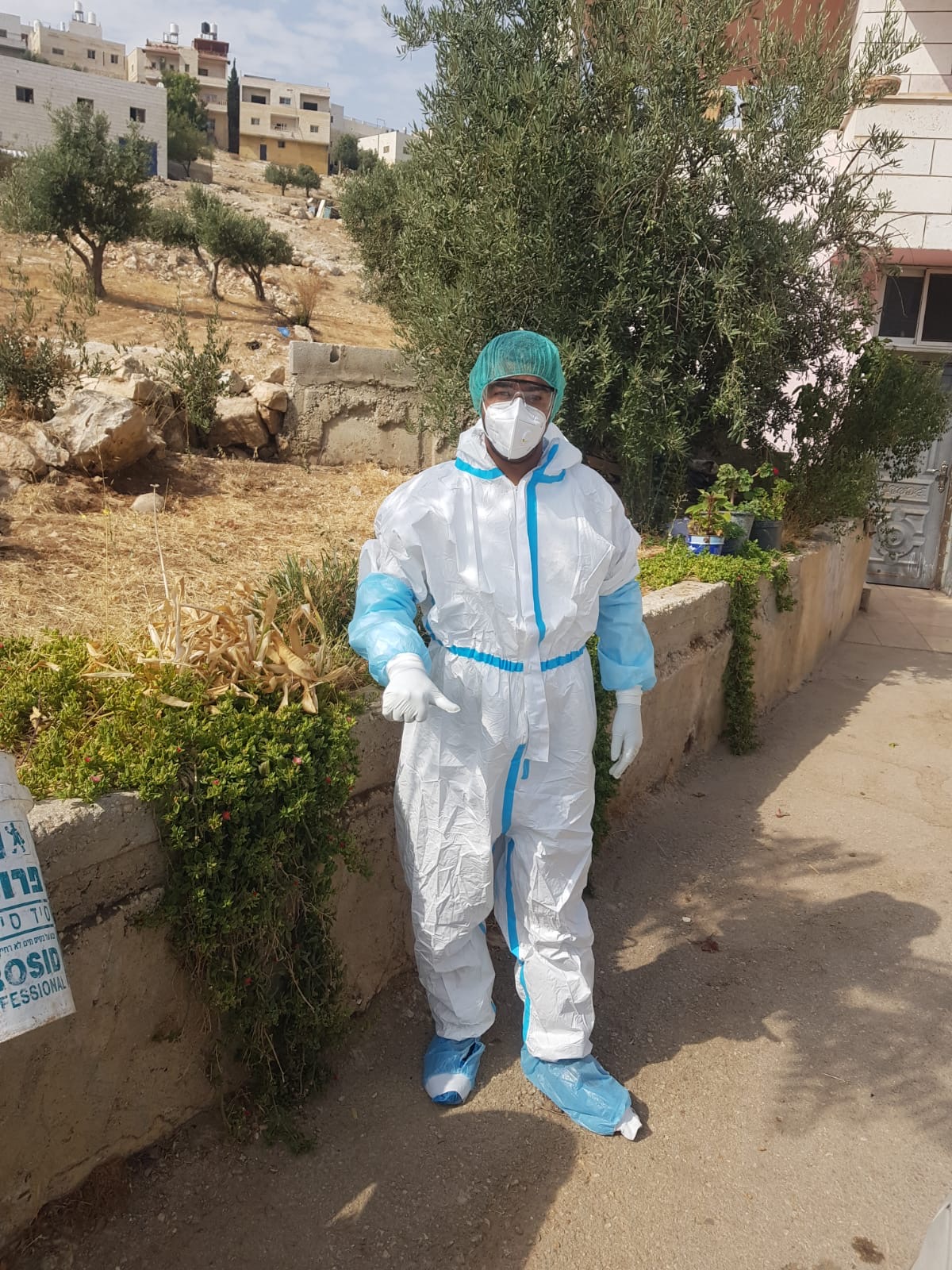 Abed Almuhdi Ghareeb is a 25-year-old paramedic and coordinator of the Palestinian Medical Relief Society (PMRS) ambulance teams and volunteers in Bethlehem governorate. He also works as youth project coordinator in the southern districts and suburbs of Jerusalem.
Abed Almuhdi Ghareeb is a 25-year-old paramedic and coordinator of the Palestinian Medical Relief Society (PMRS) ambulance teams and volunteers in Bethlehem governorate. He also works as youth project coordinator in the southern districts and suburbs of Jerusalem.
Abed Almuhdi lives in Dheisheh refugee camp and began volunteering with PMRS when he was just 13 years old. His journey started when PMRS teams came to his school and introduced the students to their work. Abed joined courses in first aid and field paramedic skills, but he hadn’t thought he would end up working with ambulance teams himself.
“Once I had done the courses, I found I liked the work a lot and I was first in my class. I decided to volunteer and join the paramedic team.”
Abed Almuhdi tried work in other fields, but even during those times he continued to volunteer for PMRS.
“My work is a part of who I am… When you help someone who is injured you feel that you did something good, something to be proud of. You do not feel that in other jobs.”
In February 2020, PMRS started preparing a response plan in light of the COVID-19 public health emergency. Abed participated in several preparation sessions on how to deal with COVID-19.
On 7th March when the first cases of COVID-19 were announced in Palestine, Abed worked to train volunteers and raise public awareness on hygiene and prevention measures. The paramedic teams initially focused on providing social support to households in quarantine.
“When we started our work in the field, we did not have any protective clothes, then the Engineers Syndicate donated 4 protective suits. We used the same suit for around 2 months, disinfecting it each time. The first days were stressful and scary, as we did not have a full understanding of what we were dealing with. In our country we are used to dealing with injuries due to clashes, but this pandemic was something new. There was nothing and then suddenly everything closed in the country and we had to be out there doing our best to fight something we did not fully understand.”
 However, later in the pandemic, with increased numbers of health workers affected by COVID-19, Abed and some of his colleagues were requested by the Palestinian Ministry of Health to support preventive medicine teams. This involved support to testing persons suspected to have COVID-19, continued awareness raising and disinfection households of persons suspected or confirmed to have had COVID-19.
However, later in the pandemic, with increased numbers of health workers affected by COVID-19, Abed and some of his colleagues were requested by the Palestinian Ministry of Health to support preventive medicine teams. This involved support to testing persons suspected to have COVID-19, continued awareness raising and disinfection households of persons suspected or confirmed to have had COVID-19.
“The second wave was not so scary. We were more aware of how to deal with the virus and better prepared to protect ourselves”.
Since the outbreak in Palestine, Abed moved away from the family home where he previously lived with his parents and one sibling, for their safety. Up until recently Abed only saw his family from the house window, speaking to his mother through the window.
“In the end I am dealing with the virus on a daily basis. I do not want this virus to reach my family. My father suffers from chronic diseases and I did not want to put him at risk.”








